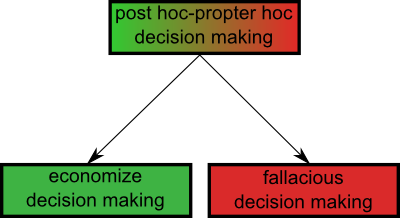A nature article by M. A. Nowak, C. E. Tarnita & E. O. Wilson1 aroused a furious reaction. Six comments have been submitted to nature alone:
- by Joan E. Strassmann, Robert E. Page Jr., Gene E. Robinson & Thomas D. Seeley2
- by Edward Allen Herre & William T. Wcislo 3
- by Krakauer DC, Flack JC.4
- by Michael Doebeli5
- by Nonacs P.6
- by van Veelen M, García J, Sabelis MW, Egas M.7.
- And this article by Markus Waibel, Dario Floreano8
can also be considered as related to this discussion.
I won’t give the fauceir stance on this subject here which deserves to Mato who will hopefully do this in the near future. My point is about the way discussions are held in evolutionary biology. Some insight provides this science article by Elizabeth Pennisi. Evolutionary biologist Stuart West who organized a roar of more than 130 scientists9 is quoted:
“[Our] letter is written in the hope that it will keep nonspecialists from wasting time on it.”
this can be simply rephrased:
“As in this case we were unable to prevent this article from publication we want to exert control on what is published now with all the power of a big crowd.”
Isn’t it shameful for a scientist to appeal to a fallacy like this?
“As most of the people thing the other way this cannot be true and should not be considered more seriously.”
Isn’t it the privilege of scientist to be true even if opposed by the majority? Didn’t famous scientists even lost their lives in their struggle for scientific advancement, Giordano Bruno for instance.
I like the allegory put forward by Steve Jones.
Not long ago, I was stung by a metaphor. A gang of paper-wasps guarding their shared nest, irritated at my exposition of their habits to a bunch of students, went on the attack. The effects were unpleasant — a hot, sweaty, choking feeling and an overwhelming desire to take a cool shower (which did not help).
An extraordinary scientist is not meant to be a mere social insect. He (please excuse sexists wording) used to develop outstanding ideas because he has an outstanding character, and an outstanding character can be maintained only by individualists. Well and these kind of people have to suffer the aggression of those who instinctively—as this is rooted in irrational behavior and only superficially rational activity—feel obliged to defend the hive. For decades Fauceir Theory challenges conventional evolutionary believes and has therefore bluntly dismissed. Mato should be please to learn that others share the fate.
It’s time for a change, now.
1. Nowak MA, Tarnita CE, Wilson EO. The evolution of eusociality. Nature. 2010;466(7310):1057-1062.
4. Krakauer DC, Flack JC. Better living through physics. Nature. 2010;467(7316):661.
5. Doebeli M. Inclusive fitness is just bookkeeping. Nature. 2010;467(7316):661.
6. Nonacs P. Ground truth is the test that counts. Nature. 2010;467(7316):661.

This work by Paul Netman is licensed under a Creative Commons Attribution-Share Alike 3.0 United States License.
Fauceir theory is developed and © by Mato Nagel and available at www.fauceir.org.







